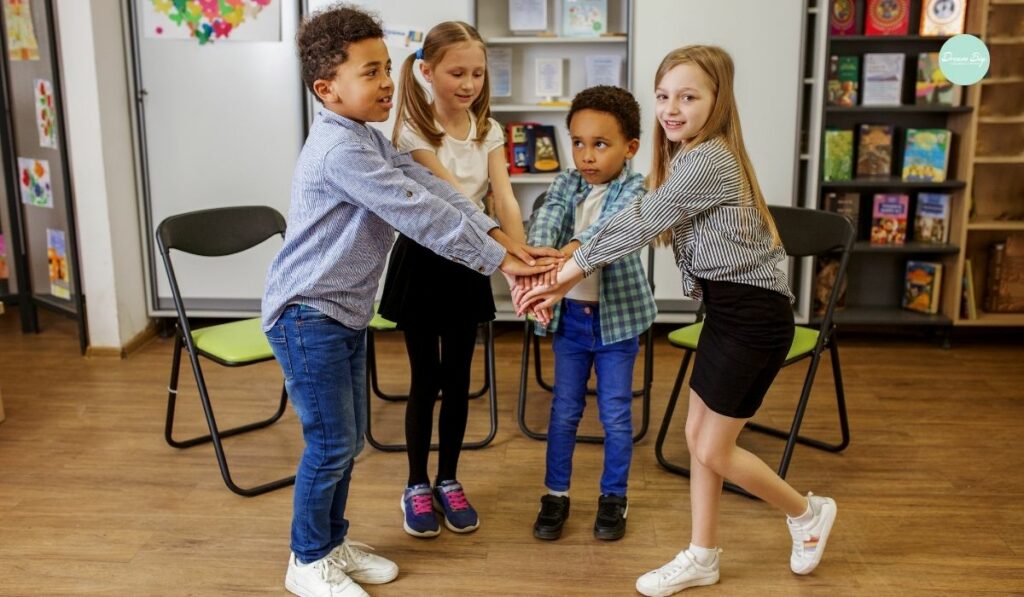Social skills are crucial for children to navigate the complexities of daily interactions and build meaningful relationships. However, developing these skills can be particularly challenging for children with autism spectrum disorder (ASD). With the right strategies and support, such as working with ABA providers Monrovia, CA, these children can make significant progress. Here are practical tips for helping children with autism develop their social skills.
Understanding the Basics of Social Skills
Social skills encompass a range of behaviors, including:
- Communication: Verbal and non-verbal interactions.
- Play: Cooperative play, sharing, and taking turns.
- Empathy: Recognizing and responding to others’ feelings.
- Self-Regulation: Managing emotions and behaviors in social contexts.
Children with autism may struggle with any or all of these areas, making targeted support essential.
Individualized Approaches
Every child with autism is unique, and their social skills development should be tailored to their specific needs and abilities. An individualized approach ensures that interventions are appropriate and effective.
- Assess Strengths and Weaknesses: Begin with a thorough assessment of the child’s current social skills. This can be done through observations, standardized tests, and input from parents and teachers.
- Set Realistic Goals: Based on the assessment, set specific, measurable, achievable, relevant, and time-bound (SMART) goals for social skills development.
Applied Behavior Analysis (ABA) Therapy
ABA therapy is one of the most effective methods for teaching social skills to children with autism. It uses principles of learning and behavior to bring about positive changes.
- Discrete Trial Training (DTT): This involves breaking down social skills into small, manageable steps and teaching each step individually. For example, teaching a child to make eye contact by rewarding them each time they do so.
- Natural Environment Teaching (NET): Skills are taught in natural settings rather than structured sessions. This helps children apply what they’ve learned to real-world situations.
- Social Stories: These are short, descriptive stories that explain social situations and appropriate responses. They help children understand and prepare for various social interactions.
Modeling and Role-Playing
Modeling involves demonstrating appropriate social behavior for the child to observe and imitate. Role-playing allows the child to practice these behaviors in a safe and supportive environment.
- Parents and Teachers as Models: Adults can model social behaviors during interactions with the child and others. For example, showing how to greet someone or take turns in a conversation.
- Peer Models: Involving typically developing peers in role-playing activities can provide additional modeling and opportunities for practice.
- Scripted Role-Playing: Start with structured scenarios and gradually move to more spontaneous interactions as the child gains confidence.
Social Skills Groups
Social skills groups provide a structured environment where children with autism can practice social interactions with peers under the guidance of a trained facilitator.
- Small Groups: Small groups ensure that each child receives individual attention and support.
- Structured Activities: Activities should be planned to target specific social skills, such as initiating conversations, sharing, and collaborative play.
- Positive Reinforcement: Praise and rewards should be used to reinforce positive social behaviors.
Visual Supports
Visual supports can help children with autism understand and remember social rules and expectations.
- Visual Schedules: These can outline the steps of social interactions or daily routines, helping children anticipate what will happen next.

- Social Scripts: Visual cues or written prompts that guide the child through social situations, such as how to join a group activity or ask for help.
- Emotion Cards: Pictures or symbols representing different emotions can help children recognize and respond to others’ feelings.
Encouraging Play
Play is a natural way for children to develop social skills. Encourage different types of play that promote interaction and cooperation.
- Parallel Play: Initially, children may play side by side without directly interacting. Gradually encourage more interactive play.
- Interactive Play: Activities that require cooperation, such as building a tower together or playing a simple board game.
- Imaginative Play: Role-playing games and pretend play can help children understand social roles and perspectives.
Communication Strategies
Effective communication is a cornerstone of social interaction. Support the development of both verbal and non-verbal communication skills.
- Speech Therapy: A speech-language pathologist can work with the child to improve their verbal communication skills.
- Alternative Communication: For non-verbal children, teach alternative communication methods such as sign language, picture exchange systems, or communication devices.
- Practice Conversations: Engage the child in simple conversations, gradually increasing complexity as their skills improve.
Consistent and Positive Reinforcement
Positive reinforcement encourages children to repeat desired behaviors. Consistency in reinforcement is critical to helping children with autism learn new skills.
- Immediate Rewards: Provide immediate praise or rewards when the child displays appropriate social behavior.
- Consistency Across Settings: Ensure that parents, teachers, and therapists use the same reinforcement strategies to provide a consistent learning environment.
Parental Involvement
Parents play a crucial role in their child’s social skills development. They can provide ongoing support and reinforcement at home.
- Training and Education: Parents should be trained in the techniques used by therapists and teachers so they can reinforce social skills at home.
- Involvement in Therapy: Encourage parents to participate in therapy sessions and practice social skills with their child in everyday situations.
- Support Networks: Connecting with other parents of children with autism can provide valuable support and resources.
Patience and Persistence
Developing social skills in children with autism is a gradual process that requires patience and persistence.
- Celebrate Small Wins: Recognize and celebrate each small step of progress to keep the child motivated.
- Be Patient: Understand that setbacks are part of the learning process and maintain a positive, supportive attitude.
Conclusion
With tailored strategies and consistent support, children with autism can develop the social skills necessary for meaningful interactions and relationships. By using a combination of individualized approaches, ABA therapy, modeling, role-playing, social skills groups, visual supports, and parental involvement, significant progress can be achieved. Patience, persistence, and positive reinforcement are vital to helping these children thrive socially.
Please visit Dream Big Children’s Center for more information on supporting children with autism or to consult with our experts.
FAQs
What are social skills, and why are they essential for children with autism?
Social skills refer to a range of behaviors, including communication, play, empathy, and self-regulation. They are crucial for building relationships and navigating daily interactions. Children with autism often struggle with these skills, making targeted support essential for their development.
How can I assess my child’s current social skills?
Assessment can be done through observations, standardized tests, and input from parents and teachers. This helps identify strengths and weaknesses, guiding personalized interventions.
What is Applied Behavior Analysis (ABA) therapy, and how does it help?
ABA therapy uses learning principles to teach social skills through methods like Discrete Trial Training (DTT) and Natural Environment Teaching (NET). It breaks down skills into manageable steps and teaches them systematically.
How can I teach my child about social situations and appropriate behavior?
Social Stories are practical tools that use short stories to explain social interactions and responses. Modeling and role-playing also help by demonstrating and practicing behaviors in real-life contexts.
What are social skills groups, and how do they benefit children with autism?
Social skills groups provide structured settings where children practice interactions with peers. Small group sizes ensure individual attention, and activities are designed to target specific skills like initiating conversations and sharing.
What role do visual supports play in teaching social skills?
Visual supports like schedules, social scripts, and emotion cards help children understand social rules and expectations. They provide visual cues that guide behavior in social settings.
How can parents support their child’s social skills development at home?
Parents can reinforce skills learned in therapy by practicing at home, participating in therapy sessions, and providing consistent positive reinforcement. Training in techniques used by therapists is beneficial for adequate support.
What are effective communication strategies for children with autism?
Speech therapy and alternative communication methods, such as sign language or communication devices, help improve verbal and nonverbal communication skills. Practice conversations gradually increase complexity and confidence.
How important is patience in developing social skills in children with autism?
Patience and persistence are essential, as learning social skills is a gradual process. Celebrating small successes and maintaining a positive attitude through setbacks encourages continued progress.
Where can I find support and resources for helping my child with autism develop social skills?
Connecting with other parents, accessing support networks, and staying informed through educational resources provide valuable support and guidance.


